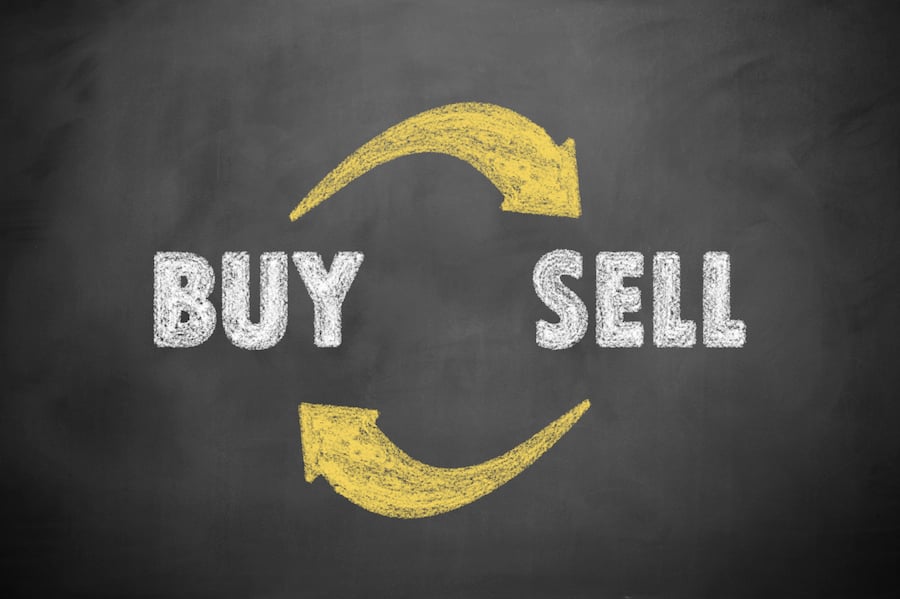The firm sold about $18 billion of Total Return fund assets to other Pimco funds and accounts between October and March, helping it meet more than $100 billion of redemptions that followed Mr. Gross's surprise exit.
When Bill Gross stepped down from the Pimco Total Return Bond Fund in September, traders across Wall Street anticipated that the world's biggest bond fund would be forced to dump holdings at fire-sale prices to meet record client withdrawals.
So why didn't it happen? One explanation, according to a regulatory filing last month, may be that Pacific Investment Management Co. held the fund's clearance sale in-house. The firm sold about $18 billion of Total Return's assets to other Pimco funds and accounts between October and March, helping it meet more than $100 billion of redemptions that followed Mr. Gross's surprise exit.
Pimco, among the largest bond managers with about $1.6 trillion in assets, made use of a provision in the Investment Company Act of 1940 allowing funds within the same family to trade with one another under limited circumstances. Such cross trades are tightly regulated because they pose potential conflicts of interest, and can only be done if they're beneficial to the buyer and seller. In this case, their use may also have limited the fallout in areas of the bond market where the fund traditionally held large chunks of debt, such as Treasury Inflation Protected Securities, or TIPS.
“There was this perception that Pimco would have to dump stuff on the marketplace and that just kind of tanked prices,” said Claude Erb, a former fund manager at TCW Group. “Pimco's forced selling did not materialize,” though, “so things recovered fairly quickly.”
Agnes Crane, a spokeswoman of Newport Beach, Calif.-based Pimco, declined to comment.
CLASSIC DILEMMA
Pimco Total Return Fund has seen assets plunge by more than 60% from a peak of $293 billion in April 2013, with much of the decline stemming from client redemptions following Mr. Gross's Sept. 26 departure. Raising cash to meet these client withdrawals posed a classic money manager dilemma. Selling Total Return's most actively traded assets would leave the fund concentrated in hard-to-sell securities, while unloading less liquid securities could drive down prices and exacerbate losses.
Cross-selling helps funds cut transaction costs, including mark-ups charged by dealers, and also allows them to keep hard-to-find bonds within the firm. The Securities and Exchange Commission requires that the transactions occur at market prices and be advantageous to both parties, to avoid that one fund dumps unwanted assets on another, or sells them at inflated prices to artificially boost its own returns.
“It saves money on transaction costs and it also allows you to dispose of securities without going into the market and impacting the price,” Diana McCarthy, a partner in the investment management group of Drinker Biddle & Reath in Philadelphia, said.
Many funds refrain from doing cross trades because it can be difficult to set the appropriate price between buyer and seller, particularly in the bond market, where many securities trade infrequently, according to Michael Lipper, the head of a fund advisory company in Summit, N.J.
The regulatory documents don't disclose which securities were sold through related-party transactions or which Pimco funds were engaged in the deals. But the filings do show that some Pimco funds were buying the same securities that the firm was selling during last year's fourth quarter.
For example, Pimco Total Return Fund sold almost $3.8 billion of its inflation-linked Treasuries maturing in July 2021, with a coupon of 0.625, and about $1.6 billion of 2.375% TIPS that come due in January 2025, according to holdings reports published on Pimco's website.
IVASYCN BOUGHT
The Pimco Income Fund, run by Daniel Ivascyn, acquired 2021 TIPS and 2025 TIPS with face values of $527 million and $984 million respectively during the same quarter. The 2025 TIPS ranked as Pimco Income Fund's largest holding at the end of March, according to data compiled by Bloomberg.
Mr. Ivascyn's fund, which seeks to maximize current income, previously held little or no TIPS since the middle of 2012, according to regulatory filings.
Pimco Total Return, by contrast, owned a big chunk of that market before Mr. Gross's exit. The fund held about 13.9% of outstanding TIPS of an issue maturing in 2021 and 19.2% another maturing in 2025, excluding securities owned by the Federal Reserve, according to data compiled by Bloomberg.
“If you want to unload a position in TIPS, it's going to be extraordinarily problematic and visible to everyone out there” said David Ader, the head of government bond strategy at CRT Capital Group.
Pimco funds have engaged in cross trades for years. For most of its history, though, Total Return bought far more securities than it sold. During the five-year period ending March 2013, Pimco Total Return Fund bought $37.6 billion of securities from its fellow funds while selling them about $14.2 billion, according to SEC filings.
That changed about two years ago, when the fund first began seeing outflows. Pimco Total Return sold some $12 billion of securities to affiliates in mid-2013, when fears that the U.S. Federal Reserve might slow its bond buying program led to a fixed income selloff known as the taper tantrum. The fund also bought almost $5 billion in securities from other Pimco funds during that time.
The cross-selling accelerated after Mr. Gross left in September, with $18 billion in sales, compared with purchases of only $4 billion, according to the fund's most recent annual report.
“If you are trying to move five bonds, that is one thing,” Mr. Lipper said. “If you are trying to move a thousand, that is where the real liquidity issue comes in.”







